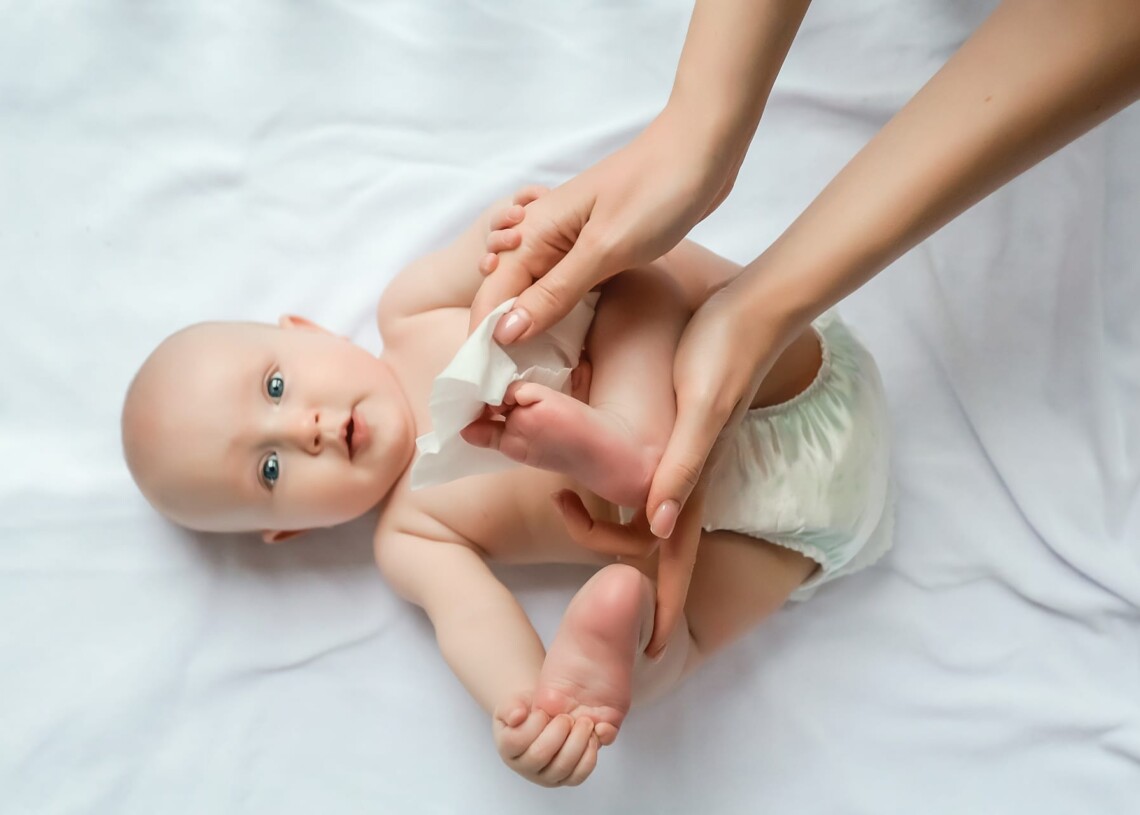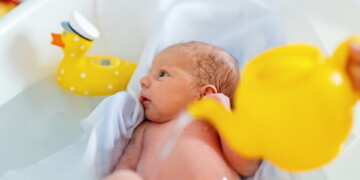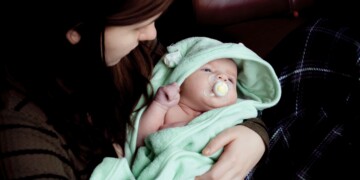Key Notes
- Reams can help to prevent fungal infections
- Hypoallergenic formulas are available for babies with food sensitivities
- Babies should be bathed regularly and their clothing should be washed in a hypoallergenic detergent
- Diapers should fit properly and be changed frequently
In this article, we will discuss the causes of newborn diaper rash, different types of diaper rashes and how to treat them naturally.
Causes of Newborn Diaper Rash
There are many different causes of newborn diaper rash, and it can be caused by a variety of factors including:
Allergic reaction to diapers or laundry detergent:
This is the most common cause of diaper rash. Babies can develop a rash if they are allergic to the materials in their diapers or to the detergent used to wash them.
Friction:
Another common cause of diaper rash is friction. This can happen when the diaper is too tight or when it rubs against the skin. It can also happen if the baby moves around a lot in their sleep. It is important to make sure that the diaper is not too tight and that it does not rub against the skin.
Irritation from stool or urine:
This is another common cause of diaper rash. The acids in urine and stool can irritate the skin, especially if the baby has diarrhea. It is important to keep the area clean and dry. It may also be helpful to use a barrier cream.
Bacteria overgrowth in the gut:
This can happen when the baby’s gut is not healthy. When the gut is not healthy, it can allow bacteria to overgrow. This can lead to a rash. It is important to see a doctor if you think this may be the cause of your baby’s diaper rash.
Chafing from a wet and soiled diaper:
This is the most common cause of diaper rash in babies who are not breastfed. It can be caused by urine, stool or sweat.
Contact dermatitis (a skin irritation caused by contact with an irritant):
This can happen if the baby has a skin reaction to something that comes into contact with their skin, such as soap, laundry detergent or creams.
Fungal infection:
This can happen if the baby’s skin is wet or damp for too long. You may also need to use an antifungal cream. This is a rare cause of diaper rash.
Sensitivity to certain foods in your diet:
This can happen if you are breastfeeding and your baby is sensitive to certain foods in your diet. It is important to avoid eating foods that your baby is sensitive to (read here: Foods for Breastfeeding Mothers to Eat and Avoid). You may also need to use a hypoallergenic formula.

Types of Newborn Diaper Rash
There are many different types of diaper rash, and the type of rash can help you to determine the cause. The most common types of diaper rash are:
Irritant diaper rash:
This is the most common type of diaper rash. It is caused by contact with urine, stool or sweat.
Allergic diaper rash:
This is a type of diaper rash that is caused by an allergic reaction. It is important to avoid using products that contain irritants.
Candida diaper rash:
This is a type of diaper rash that is caused by a fungus. It is important to keep the area clean and dry.
Eczema diaper rash:
This is a type of diaper rash that is caused by eczema.
Contact dermatitis:
This is a type of diaper rash that is caused by contact with an irritant. This is a rare cause of diaper rash.
Diaper Dermatitis:
This is a type of diaper rash that is caused by a reaction to the diapers or to the detergent used to wash them.
Treatments For baby Diaper Rash
There are many different treatments for baby diaper rash. The most important thing is to keep the area clean and dry. You may also need to use a barrier cream or an antifungal cream. If the rash does not go away, you should see a doctor.
1. Barrier Creams:
Barrier creams help to protect the skin from urine and stool. They can also help to keep the skin hydrated. It is important to choose a barrier cream that does not contain irritants.
2. Antifungal Creams:
Antifungal creams help to treat fungal infections. It is important to use an antifungal cream if you think your baby has a fungal infection. These creams can also help to prevent fungal infections. You should consult your child’s doctor before you use such creams as some of these creams can cause more skin issues. Your child’s pediatrician will be able to explain it to you better about which creams will better suit your child.
3. Hypoallergenic Formula:
If you think your baby is sensitive to certain foods in your diet, you may need to use a hypoallergenic formula. It is important to talk to a doctor before using a hypoallergenic formula. There are many different types of hypoallergenic formulas, and not all of them are created equal.

4. Make Sure to regularly Bathe Your Baby:
One of the best ways to prevent diaper rash is to regularly bathe your baby. This will help to keep the area clean and dry. This is a good way to prevent diaper rash.
5. Use A Gentle Cleanser:
It is important to use a gentle cleanser when you bathe your baby. This will help to avoid irritation. You can find several cleanser in the market that are specifically designed for babies and which can help to soothe the skin.
6. Use Diapers That Fit Properly:
It is important to use diapers that fit properly. If the diapers are too tight, they can rub against the skin and cause irritation. If the diapers are too loose, they can leak and cause the area to become wet.
7. Wash Your Baby’s Clothing In A Hypoallergenic Detergent:
If you think that your baby’s diaper rash is being caused by something in his or her clothing, you may want to wash the clothes in a hypoallergenic detergent.
8. Change Your Baby’s Diapers Frequently:
It is important to change your baby’s diapers frequently. This will help to keep the area clean and dry. Many children suffer from diaper rash because their diaper isn’t changed on a regular basis.
9. Use A Soft Towel To Dry Your Child’s Bottom:
It is important to use a soft towel to dry your child’s bottom. This will help to avoid irritation. You should also make sure that you pat the area dry, rather than rubbing it.
10. Probiotics:
Probiotics help to keep the gut healthy. They can also help to prevent diaper rash. It is important to talk to a doctor before giving your baby probiotics. You should only take the same amount of probiotics as prescribed by the doctor.it is also important to choose a probiotic that is specifically designed for infants.
11. Change Your Diet:
If you think your baby is sensitive to certain foods in your diet, you may need to change your diet. It is important to avoid eating foods that your baby is sensitive to.
See A Doctor
If the rash does not go away with treatment, or if it gets worse, you should see a doctor. The doctor can help determine the cause of the diaper rash and prescribe the appropriate treatment.



























